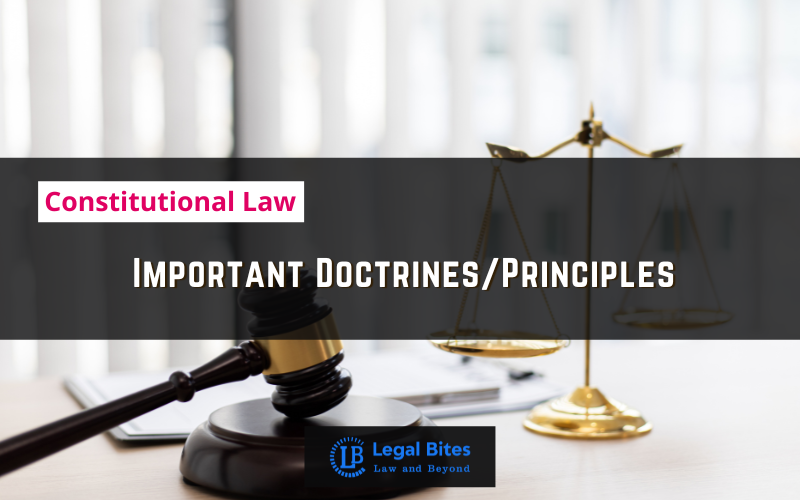“An error apparent on the face of the record can be corrected in review proceedings”. Elaborate. Whether a party can apply for a review in an ex-parte decree granted by the competent court?
Question: “An error apparent on the face of the record can be corrected in review proceedings”. Elaborate. Whether a party can apply for a review in an ex-parte decree granted by the competent court? [JJS 2017] Find the answer to the mains question only on Legal Bites. [“An error apparent on the face of the record can be… Read More »
;
Question: “An error apparent on the face of the record can be corrected in review proceedings”. Elaborate. Whether a party can apply for a review in an ex-parte decree granted by the competent court? [JJS 2017] Find the answer to the mains question only on Legal Bites. [“An error apparent on the face of the record can be corrected in review proceedings”. Elaborate. Whether a party can apply for a review in an ex-parte decree granted by the competent court?] Answer Section 114 of...
Question: “An error apparent on the face of the record can be corrected in review proceedings”. Elaborate. Whether a party can apply for a review in an ex-parte decree granted by the competent court? [JJS 2017]
Find the answer to the mains question only on Legal Bites. [“An error apparent on the face of the record can be corrected in review proceedings”. Elaborate. Whether a party can apply for a review in an ex-parte decree granted by the competent court?]
Answer
Section 114 of CPC provides for a substantive power of review by a civil court and consequently by the appellate courts subject to some conditions and limitations. Although section 114 doesn’t prescribe any limitation on the power of the court it has been provided in Order 47, Rule 1.
So, for that matter, the procedural conditions contained in Order 47 of the Code must be taken into consideration. Which provides three conditions, one of which says that review of judgment or an order could be sought on account of some mistake or error apparent on the face of the record or any other sufficient reason.
In the case of Haridas Das v. Usha Rani, (2006) 4 SCC 78 there was a mistake or an error committed by the Hon’ble court which was apparent on the face of record while pronouncing the decree, because of which the party believes that the decree has been influenced and could be passed in his favor either. The court to which held that “a mistake or an error apparent on the face of the record means a mistake or an error which is prima-facie visible and does not require any detail examination”
The Supreme court, Inderchand Jain (dead) v. Motilal, (2009) 14 SCC 663 and held “that re-appreciation of evidence and rehearing of the case without there being any error apparent on the face of the record is not permissible in light of provisions as contained under Section 114 and Order 47 Rule 1 of Code of Civil Procedure, 1908”.
Further, Order 9, Rule 13 of CPC prescribes two grounds for setting aside an ex-parte decree.
- That the summons was not duly served, or
- That the defendant was prevented by sufficient cause from appearing when the case was called on for hearing.
If either of these conditions is satisfied, the court must set aside the decree, and where these conditions are not satisfied the decree cannot be set aside.
Moreover, an order setting aside an ex parte decree is not a decree. A revision against the order may lie if the conditions of Section 115 are satisfied, as for instance, where the order is contrary to the provisions of Order rule 13, or where the court has disposed of the application upon a consideration of the merits of the decree or has refused to set aside the decree despite the fact that summons was not duly served or has disposed of the matter on an erroneous view regarding limitation, etc. However, no revision will lie if an alternate remedy is available.
Important Mains Questions Series for Judiciary, APO & University Exams
- Constitutional Law Mains Questions Series Part-I
- Constitutional Law Mains Questions Series Part-I
- Constitutional Law Mains Questions Series Part-II
- Constitutional Law Mains Questions Series Part-IV
- Constitutional Law Mains Questions Series Part-V
- Constitutional Law Mains Questions Series Part-VI
- Constitutional Law Mains Questions Series Part-VII
- Constitutional Law Mains Questions Series Part-VIII
- Constitutional Law Mains Questions Series Part-IX
- Constitutional Law Mains Questions Series Part-X



